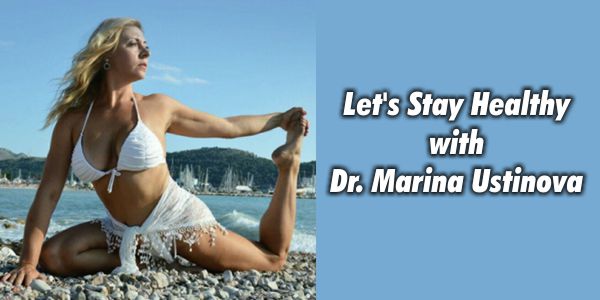The above statement has become a cliché, but according to anti-aging doctor Marina Ustinova, it is true – and it is what her practice focuses on.
“I specialize in a unique category. It’s called psychological aging”, says Ustinova, who is part of the American Academy of Anti-Aging Medicine. “There are three types of aging – chronological, biological and psychological. I focus on psychological.”
Ustinova says that our chronological aging “cannot be changed” and is part of our basic makeup, or “passport” as she puts it, that basically is how many hours we have lived on Earth.
“But what can be changed – and this is important – are biological aging and psychological aging”, she states. “Biological tells us what condition our body is in – ‘Oh, I look like a 20 year old – even though I’m 50!’. Psychological is how old we feel, as in ‘ Oh! I am 25 but feel like I’m 50!”
“Biological aging is determined by what we call biomarkers”, Ustiniva continues. “Biomarkers include many things. The level of hormones in our bodies is one biomarker. In short, we measure our biological age by various biomarkers of aging – like the level of collagen, which measures the quality of one’s skin. Other biomarkers include the quality and density of bones and quality of body tissue.”
While she has knowledge of and deals with biological aging, Ustinova says she specializes in psychological aging.
“Psychological aging is the condition of your mind and the condition of your soul”, says Ustinova. “It has a lot to do with emotional traumas you have in your life. For example, you can be a 25 year-old man who can psychologically and energetically be like a 50 year-old man, right? And you can be a 50 year-old man who psychologically be a 50 year-old man who psychologically and energetically feels like a 16 year-old. Because through his psyche and his soul, he has a young psyche and a young soul.”
Ustinova says she stresses appropriate nutrition for her client’s bodies – and meditation and yoga to treat their psychological aging.
“What happens when people age, they become less helpful to their employer and have less passion for their work and have less energy – because they are not healed emotionally”, says Ustinova. “They have been traumatized – so a lot of what I do has to do with quality of energy and what we call clearing your consciousness.”
“Okay? So I specialize – like a dermatologist about the outside, at an intense level, I search for the beauty inside”, she continues. “I treat their soul and consciousness while using updated medicines. In short, that is what I am doing.”
Ustinova says she can make people feel at least 15 years younger than their chronological age, but not much more, because “we are not magicians”.
“But, bottom line, our mind is primary and our body is secondary. Okay?”, Ustinova states – and then refers to a Stanford study that perfectly illustrates what she is talking about.
“Stanford did an amazing experiment”, says Ustinova. “They took a group of people and they put them – for one month – they created an atmosphere of their youth. The same music. The same clothes. Same conversations. Same movies . Then they looked at their biological markers, before and after – and guess what? They saw positive results in the biomarkers that made them feel physically younger!”
“This is how I teach my students”, she adds. “We have a powerful tool. We are the manager of our own progress.”
Ustinova stresses that taking care of the body through nutrition intake and other factors is almost as important as taking care of the mind and soul – but another factor is at play.
“A lot has to do with environment as well”, she stresses. “For example, I’d like to think that I’m 25 years old but I see my friends and they have ten year-old kids already”, she laughs. “They have kind of aged and so have I – because we are socially conditioned to feel older with children.”
“But eventually, by training the mind and the body, we can change the biological age”, Ustinova concludes. “Yes. In modern life, our lifestyle impacts our health more than genes.”











